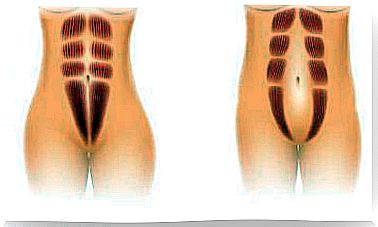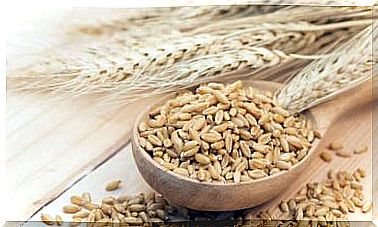Excessive Concern About Eating Healthy: What Are Its Consequences?
In recent years, the number of people showing excessive concern about healthy eating has increased. The nutritional currents and the concern to take care of themselves, can make certain people become obsessed. This is what is known as orthorexia.
It is not positive to take any dietary trend to the extreme, no matter how positive it is for health. Virtue always resides in the middle. Below we will detail what orthorexia specifically consists of and how it can affect the life of the individual, so that you are aware of its consequences.
What is excessive concern about eating healthy?
Orthorexia nervosa was described not long ago by Steven Bratman in 1997. It is characterized by the pathological obsession of biologically pure food, leading to significant dietary restrictions.
People who suffer from it exclude from the diet foods that they consider impure because they carry herbicides, pesticides or other artificial substances, carrying out a strict diet, sometimes, with a lack of essential nutrients. Typically, they refuse to eat out because they do not trust food preparation.

This excessive preoccupation with food usually begins in people who want to lose weight, want to improve their health or treat a disease. It can also be given to vegetarians and vegans. But, in the end, the diet becomes the center of his life.
Unlike people with anorexia or bulimia, who are concerned about the amount of food or their physical appearance, people with orthorexia are more concerned about the quality of food. Anyway, this pathology also has a nervous character, according to experts. There are a number of people who are genetically more predisposed to suffer from it if the right conditions are given.
How to diagnose it?
As the concept is relatively new, there are only two approved studies for the diagnosis of orthorexia. First, the ORTO-15 questionnaire described by Bratman S., et al. 2001, which is based on eating habits with a focus on choices between foods that are considered “healthy” and those that are unhealthy.
On the other hand, the questionnaire proposed by Donini LM., Et al. 2005. These criteria include:
- Spend more than 3 hours a day thinking about your healthy diet.
- Worrying more about the quality of food than the pleasure of consuming it.
- Decrease in their quality of life, as the quality of their diet decreases.
- Feelings of guilt when you do not comply with your dietary convictions.
- Excessive planning of what you will eat the next day.
- Social isolation caused by their type of diet.
Some behaviors related to the way of preparation (vegetables always cut in a certain way) and with the utensils used (only ceramic, only wood, etc.) are also considered symptoms, as shown in an investigation published in the journal Issues in Mental Health Nursing .
What are its consequences?
Excessive concern about eating healthy has negative consequences on the health of the person, both physically and psychologically. By restricting the number of foods allowed, the daily menu becomes a problem, which must be planned and prepared in advance.

In addition, as they need to be sure that the right products are healthy, they cannot eat outside the home, be it in a restaurant or at the home of family or friends. If we take into account that eating is a social act, most of the celebrations we do eating, these people can be seen in social isolation.
Also, a feeling of guilt may appear, if they ever break their own rules. Obsessive-compulsive disorders related to eating, depression or anxiety may also appear . On the other hand, the physical consequences are the same as those of an inadequate diet, such as:
- Malnutrition.
- Anemias
- Hypervitaminosis or hypovitaminosis.
- Mineral deficiencies.
- Hypotension
- Osteoporosis.
- Weakened immune system
Excessive concern about eating healthy: taking care of yourself, not obsessing over
Our eating habits are influenced by several factors such as:
- The media and social networks, which send misleading messages to the public.
- Alternative food streams, disseminated mainly by people who are not professionals.
- The cult of the body that exists in our current society.
Therefore, you must first inform yourself well through the media and nutritionists. Likewise, you have to pay attention to what you eat and show interest in healthy eating, but avoid becoming obsessed.








